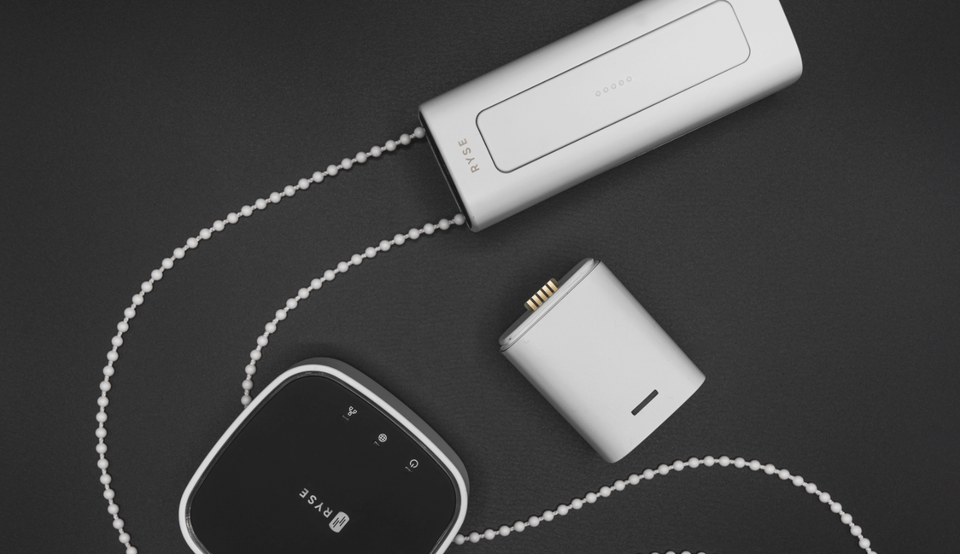Thank You, Albert


I got the email below from one of our avid readers, Albert Pogorschelske; Vice President of Horizons Optical of America.
Hey Matt,
I’ve been subscribed to your newsletter for a couple of months now and really enjoy it, that’s why I added you on LinkedIn a few weeks back!
I love that you’re now inviting readers to share their perspectives on your articles, and the first time you do it happens to be about something from my industry. I couldn’t resist, so I put together an article with my thoughts, hope you like it.
I was actually in Las Vegas last week for a tradeshow and had the chance to try the new Ray-Ban and Oakley models. They didn’t have the Ray-Ban Display that you are giving away, but I did get to test the others, and they were truly impressive.
You’ll find my article attached. Looking forward to your feedback!
Best,
Albert
Smart AI Glasses: The Next Smartphone, or the Next Privacy Minefield?
The idea that our smartphones could eventually be replaced by glasses is no longer science fiction. Advances in AI, display miniaturization, neural wristbands, and partnerships with traditional eyewear brands all point in the same direction: at some point, what we hold in our hands may shift to what we wear on our faces.
But what do I think about Meta, of all companies, being the one currently leading that race? That’s where things get complicated.
Beyond Smartphones: A Paradigm Shift
If AI-enabled glasses succeed, the transformation will be deeper than simply changing the form factor of our devices. They won’t just be another screen. They will merge vision correction, augmented reality, and AI-powered interaction into a single product category.
In other words, people will no longer choose glasses primarily based on frame design or whether the progressive lens feels more natural. They’ll be choosing based on the AI agent inside, the operating system, the ecosystem of apps, and the hardware features that surround the lenses.
That’s a massive change for the optical industry. The consumer journey would shift from an optical consultation in a practice to a tech-driven retail experience, where the main decision is which AI ecosystem to buy into. Prescription lenses will still matter, but they will become secondary to the technology layer.
Meta’s Position: Ambition, Retail Power, and Unease
Meta isn’t only investing in hardware and AI. The company has also quietly acquired a 3% stake in EssilorLuxottica (Essilux), the global leader in the optical industry with thousands of retail outlets and a portfolio of brands like Ray-Ban and Oakley.
This move gives Meta two huge advantages:
- Retail distribution at scale, through Essilux’s global footprint.
- Aesthetics and brand power, by embedding its tech into frames people already want to wear.
In other words, Meta is positioning itself not just as a tech provider but as a player within the established eyewear industry itself. That makes its smart glasses far more viable as a mass-market product.
Apple, on the other hand, already owns a vast retail network and is working on its own smart eyewear. The difference is that Apple doesn’t need an optical partner to reach consumers, their stores are already cultural landmarks.
So while Meta may be leading today in product cadence and investment, Apple’s retail strength means this race is far from decided.
Privacy: The Elephant in the Room
The real challenge isn’t just technical, it’s civic.
Smart AI glasses will carry cameras, microphones, sensors, and AI inference engines at eye level. That means they can potentially capture every conversation, every movement, every biometric signal in both private and public spaces.
With Meta’s track record on privacy and data monetization, skepticism is justified. Even if they promise on-device processing and transparent policies, the reality is that their business model has always revolved around harvesting user data. Regulators in Europe already see the risks, just as they do with Apple’s AirPods live translation, and more pushback is likely.
A Potential Solution: Blockchain for Privacy
So how do we solve this?
One idea is using blockchain technology as a privacy safeguard.
Here’s how it could work:
- Decentralized data control: Instead of user data flowing directly to Meta’s or Apple’s servers, interactions could be logged on a blockchain, giving users visibility into what’s collected and who accesses it.
- Immutable audit trails: Every data request, from AI model training to advertising, could be transparently recorded, making misuse immediately detectable.
- User-owned identity: Blockchain could enable individuals to own their digital identity and selectively grant access to certain data points, rather than surrendering everything to the company’s servers.
- Smart contracts for consent: Before data is shared, a programmable contract could enforce user permissions automatically, meaning no company could override your consent without breaking the chain.
This wouldn’t solve every challenge, but it could shift control back toward the user and build a layer of trust through transparency, something the industry desperately needs.
Asia’s Fast-Moving Contenders
It would also be naïve to think Meta and Apple are the only serious contenders. Across Asia, companies in China, Korea, and Japan are rapidly developing advanced smart eyewear with AI assistants, real-time translation, fitness tracking, and navigation features.
These players may not have the global brand recognition of Ray-Ban or Apple, but their speed and technical sophistication make them serious competitors. The smart glasses future will not be won by a single company, it will be a fragmented, competitive ecosystem.
My Take: Opportunity With Responsibility
I’m fascinated by the potential.
Glasses with AI could:
- Make navigation seamless.
- Enable real-time translation and cross-cultural communication.
- Improve accessibility for millions.
- Free us from constantly looking down at a phone.
But I’m also cautious. If smartphones changed how we live, AI smart glasses will change how we exist in public spaces. They will merge digital and physical realities in ways society has never experienced.
For the optical industry, it means preparing for a world where consumers pick eyewear based not only on frame or prescription but on AI ecosystems and operating systems. For society, it means demanding clear rules, independent oversight, and perhaps blockchain-based transparency to ensure these devices serve people rather than exploit them.
Meta’s investment in Essilux shows it understands the need for retail presence and style. Apple’s retail dominance shows the path to mainstream adoption. Asia’s innovators show how fast the landscape can shift.
The technology will come, the real question is whether we’ll build it on a foundation of trust and accountability.
Because only then can smart glasses move from exciting prototypes to truly trusted everyday tools.
Our Second Winner, One More Pair Remains!
Albert, what a great article. Awesome food for thought.
Congratulations on winning our second pair of the Meta Ray-Ban AI-Powered Display Glasses & Neural Band.
Expect it between October 20 to October 30.
Similarly, please send an email to matt@credtrus.ai with the following shipping details:
Full Name, Street Address, City, State, ZIP Code, Country, Phone Number, Delivery Instructions, and Company Name (if shipping to a business address).
This shipping information will only be used for the purpose of sending your package. It will not be stored or used for any other purpose.
From Philip A. Femano, Ph.D.
Call me naive, but if 3d TV failed because people didn't want to be bothered to put on a FREE pair of lightweight polarized paper glasses to experience such sensational "You are there!" effects, I'm tending to doubt they're going to wear heavier, expensive electronic glasses here and there during the day for those relatively rare moments when they think they will significantly benefit from AI guidance.
I guess time will tell what those significant benefits are that would make enough people so willing to put on and then take off those glasses each time they encounter an AI scenario. Especially people who don't otherwise need to wear glasses.
Will the AR feature of these glasses automatically deactivate when the wearer is driving a vehicle through complex urban traffic? What other equipment, software, and fees will the user of these glasses be responsible for? Will they be charged tokens according to AI horsepower consumed?
The AI glasses infrastructure just seem too complicated and expensive for a mass market paradigm.
Your Turn
What are your thoughts, anything you'd like to add or share around this topic or a different one?
Please reach out to me personally with your article: matt@credtrus.ai
By the way, we still have one more pair of the Meta Ray-Ban AI-Powered Display Glasses & Neural Band up for grabs.
*Disclaimer: The content in this newsletter is for informational purposes only. We do not provide medical, legal, investment, or professional advice. While we do our best to ensure accuracy, some details may evolve over time or be based on third-party sources. Always do your own research and consult professionals before making decisions based on what you read here.




